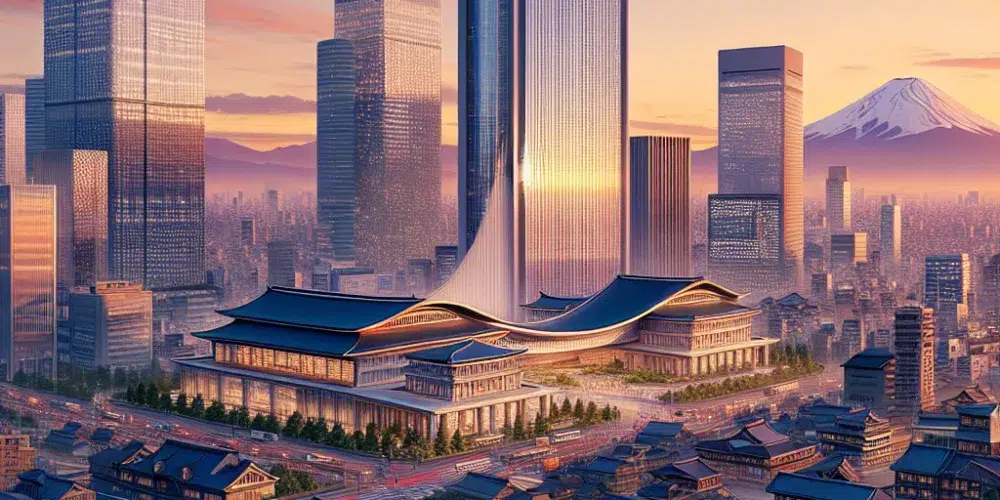In a landmark decision echoing through the halls of Japan’s central government, Tokyo has officially approved the development of its first integrated resort (IR), marking a significant pivot in the country’s traditionally conservative stance on casino gambling. This move is expected not only to revamp the local economy but also to strategically position Tokyo as a frontrunner in the global gaming and tourism industry.
As the world’s most populous metropolitan area, Tokyo presents a fertile ground for the casino industry, which has been eyeing the Japanese market since the country legalized casinos within integrated resorts in 2018. The approval, granted by the Tokyo Metropolitan Government, catalyzes the plan to construct a sprawling complex by 2027, featuring not only a casino but also hotels, conference rooms, shops, restaurants, and entertainment facilities.
The project, backed by a consortium of international investors, including prominent names from Las Vegas and Macau, aims to draw millions of visitors annually. With an estimated project cost of around $10 billion, the venture is poised to create thousands of jobs, boost local businesses, and generate significant tax revenues for the government.
According to Tokyo’s Governor Yuriko Koike, the resort will adhere to the highest standards of gambling integrity and responsible gaming. “Our vision is to create a world-class facility that emphasizes not just gaming but also offers a variety of cultural and entertainment experiences that reflect Japan’s rich heritage,” Koike stated during the press conference announcing the approval.
The integrated resort will be situated in Tokyo’s waterfront district, strategically located close to the Haneda International Airport, providing easy access for international tourists. Moreover, the development plan includes extensive measures to address concerns related to gambling addiction and community safety, including state-of-the-art surveillance systems and mandatory training for all casino staff on responsible gaming practices.
Experts predict significant economic impacts following the opening of the IR. “The ripple effects of this development will be felt across various sectors. Apart from tourism and entertainment, real estate, retail, and the service industry in Tokyo are poised for growth,” explained Dr. Haruto Kobayashi, an economist at Tokyo University.
While the decision has been met with enthusiasm from the business community and prospective international tourists, it has also stirred controversy among local residents and anti-gambling activists who fear the social implications of legalized gambling. In response, the Tokyo government has promised to initiate community engagement programs to educate the public about gambling risks and to establish funds to assist those affected by gambling-related issues.
The introduction of IRs in Japan follows a global trend where cities utilize integrated resorts to enhance tourism and economic activity. Similar models in Singapore and Macau have proven successful, blending gaming with leisure and business tourism to great effect.
With the 2025 World Expo and the continuing growth of its entertainment and cultural facilities, Tokyo’s new IR is expected to further enhance its appeal as a top international tourist destination. The Tokyo Metropolitan Government is already planning a series of international marketing campaigns to highlight the upcoming resort, aiming to attract visitors from across Asia, North America, and Europe.
As the project progresses, all eyes will be on Tokyo to see how it manages the integration of this large-scale casino resort into its urban fabric and how it balances economic benefits with social welfare. The success of Tokyo’s IR could potentially reshape Japan’s gaming landscape and set a precedent for other cities within the country to follow.
In sum, Tokyo’s leap into the integrated resort sector is not just a gamble on the casino business but a strategic bet on the city’s future as a global hub for tourism and entertainment, promising to redefine the economic contours of the region in the coming decades.

David Garato is a luminary in gaming journalism, renowned for peeling back the curtain on the gaming world with his witty and insightful commentary. A decade into weaving stories from the pixelated edges of indie games to the expansive universes of AAA titles, David’s work is a thrilling blend of analysis and adventure. When not writing, he’s live-streaming, sharing his gaming exploits with an engaged and growing audience. David doesn’t just write about games; he lives them, making him a trusted guide in the gaming community.


